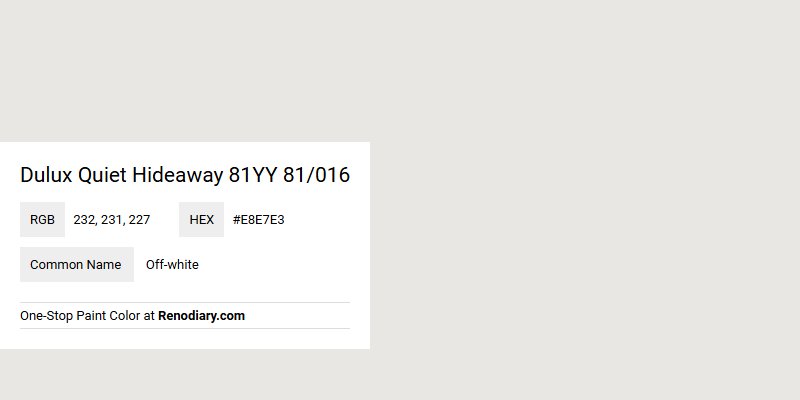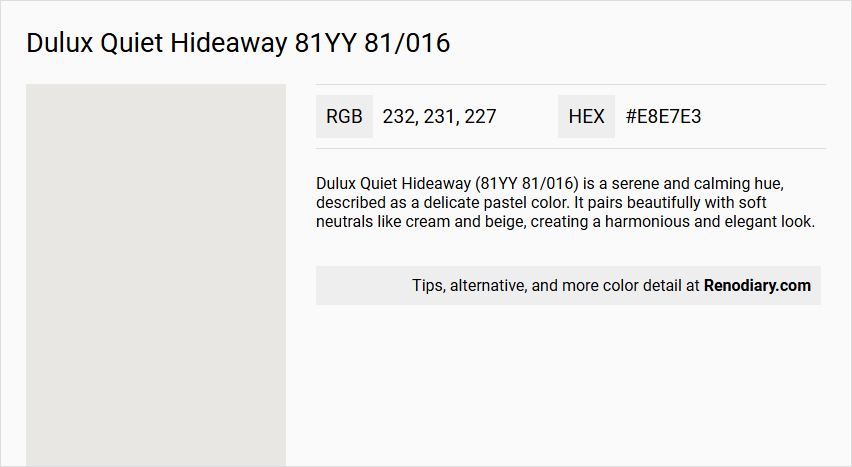
Dulux Quiet Hideaway 81YY 81/016, with its subtle RGB values of 232, 231, and 227, effortlessly embodies the essence of off-white, a shade renowned for its timeless versatility. This particular hue merges seamlessly into any decor, providing a tranquil backdrop that enhances natural light while creating a sophisticated ambiance. Perfect for both modern and classic settings, Off-white serves as a harmonious foundation that complements a wide palette of accent colors, making it a favorite among interior designers.
Color Description
Dulux Quiet Hideaway (81YY 81/016) is a serene and calming hue, described as a delicate pastel color. It pairs beautifully with soft neutrals like cream and beige, creating a harmonious and elegant look.
Undertones
The undertone of Quiet Hideaway is accurately described as a yellow hue, evident from its color space.
Color Values
- HEX value: #E8E7E3
- RGB code: 232, 231, 227
- Alternative RGB code: 233, 233, 229
Usage
Quiet Hideaway can be used as a wall color or in furnishings. It is versatile and suitable for various interior design schemes, including monochromatic and complementary color schemes. It can be combined with accents in dusty rose or sage green for a modern touch.
Atmosphere
This color evokes a sense of tranquility and peace, contributing to a calm and elegant atmosphere in any space. It brings a timeless sophistication whether used on walls or in furnishings.
Dulux Quiet Hideaway 81YY 81/016 Color Alternative
Dulux Quiet Hideaway 81YY 81/016 has several impressive color alternatives that offer distinct moods while maintaining a similar subtle elegance. Tikkurila Feather F487, Tikkurila Steam G497, and Tikkurila Cloud Y481 each provide a unique blend of warmth and sophistication suitable for a variety of design schemes. These options allow designers and homeowners alike to choose a shade that best complements their interior spaces while keeping the essence of refined aesthetics intact.
Bathroom
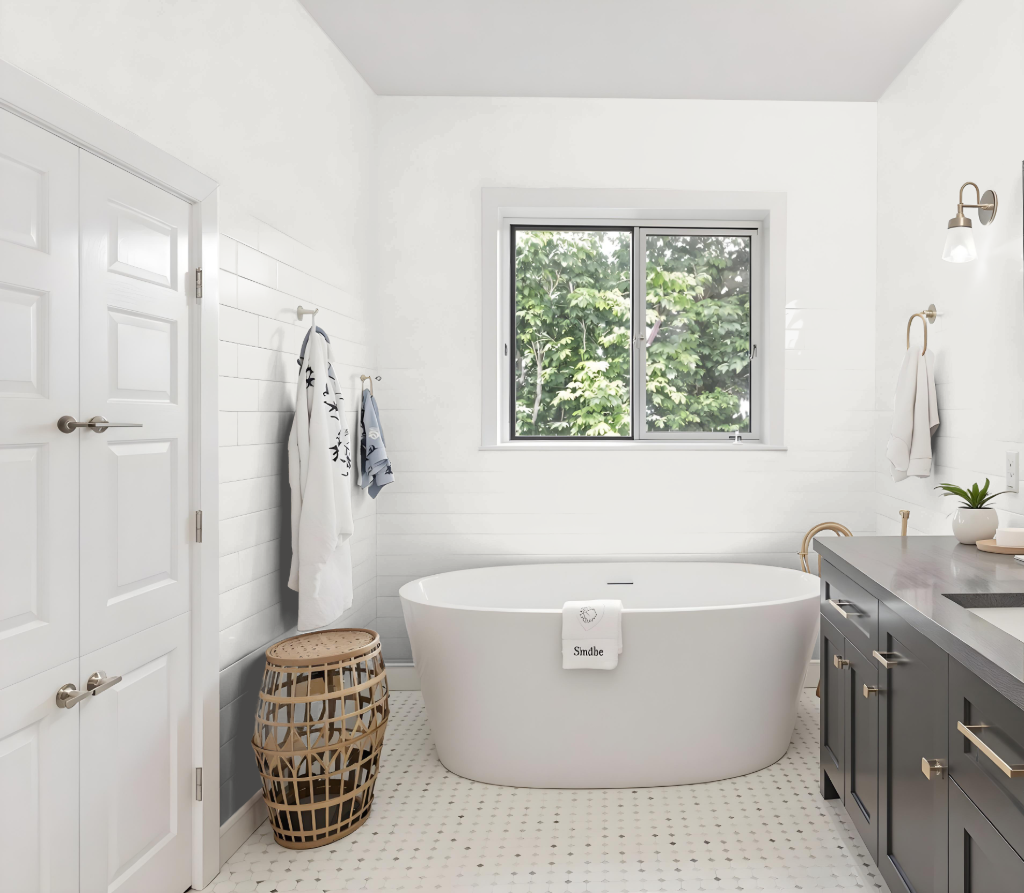
For a bathroom, Dulux Quiet Hideaway brings a calming and inviting atmosphere that enhances the space's overall aesthetic. This hue pairs beautifully with soft neutrals such as cream and beige, while accents like dusty rose or sage green introduce modern touches without overwhelming the design.
Its light and airy quality helps create the illusion of more space, seamlessly tying together surfaces including walls, ceilings, and painted furniture. By combining serene tones with subtle contrasts, this color establishes a cohesive and elegant bathroom environment.
Bedroom
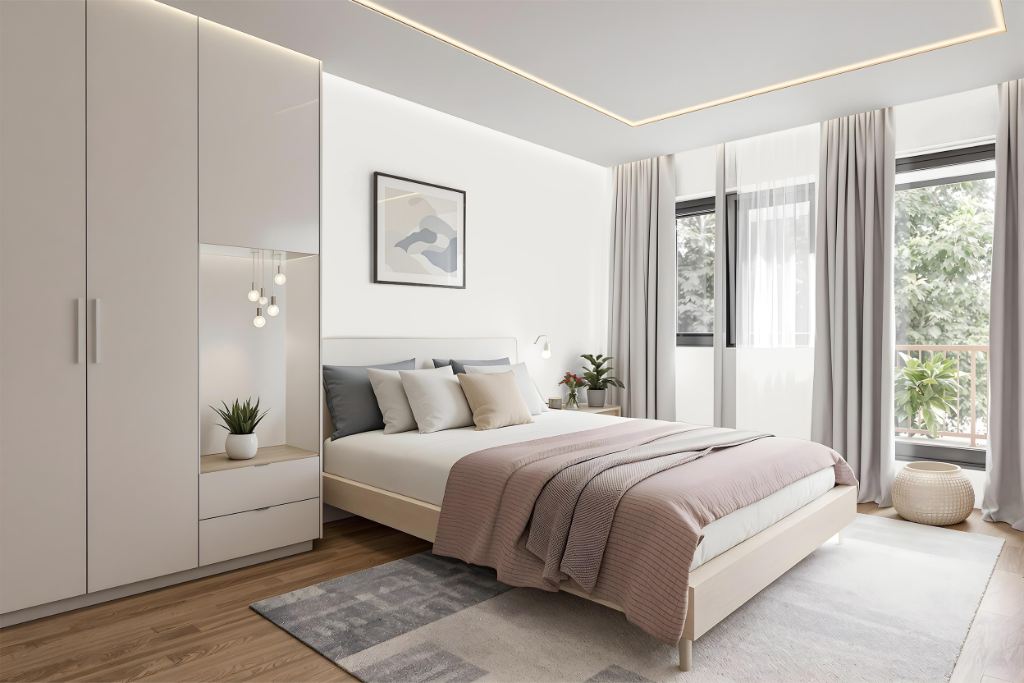
For a bedroom color scheme featuring Dulux Quiet Hideaway, pairing it with soft neutrals like cream and beige establishes an elegant, calming ambiance. Adding subtle accents in shades reminiscent of dusty rose or sage green imparts a modern twist, while a monochromatic approach using varying tones of Quiet Hideaway requires thoughtful decor choices to maintain visual interest.
Alternatively, introducing complementary hues with blue undertones can create a vibrant and dynamic backdrop. Coordinating this color with other carefully selected shades further elevates the overall aesthetic, ensuring a balanced and appealing design that transforms the bedroom into a refined retreat.
Kitchen
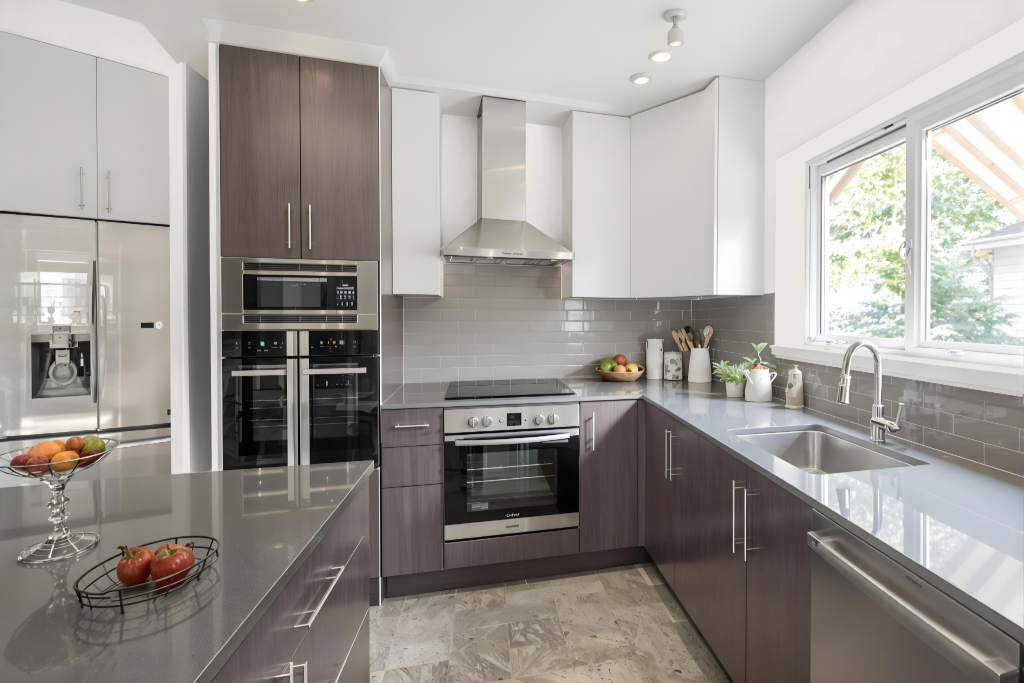
For a kitchen, Dulux Quiet Hideaway brings an elegant, calming presence that pairs beautifully with soft neutrals such as cream and beige. Its refined tone can be enhanced by subtle accents in muted dusty rose or gentle sage green, which introduce a touch of modern flair without overpowering the room.
To further enrich the space, consider a design approach that layers different shades, tints, and tones of Quiet Hideaway for a cohesive look or incorporates complementary hues of blue for a vibrant visual effect. Both styling methods create a harmonious and sophisticated environment that can be tailored to your personal taste.
Living Room
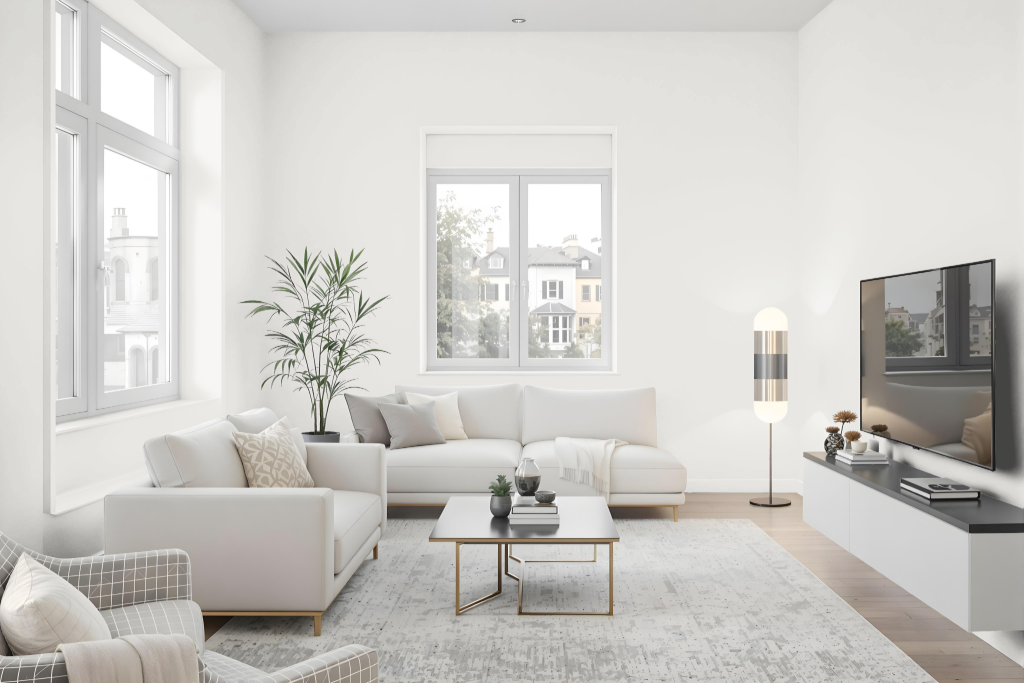
Dulux Quiet Hideaway lends a calming ambiance to any living room, creating a peaceful backdrop that sets the tone for a comfortable and inviting space. Its subtle, serene quality pairs beautifully with soft neutrals such as cream and beige, establishing a harmonious and elegant environment.
For a modern twist, consider incorporating accents in shades like dusty rose or sage green to introduce a soft pop of color without overwhelming the setting. Its brightening properties enhance natural light, making the room feel more spacious, and coordinating with either a monochromatic or complementary blue scheme can further elevate the overall visual effect.
Outdoor
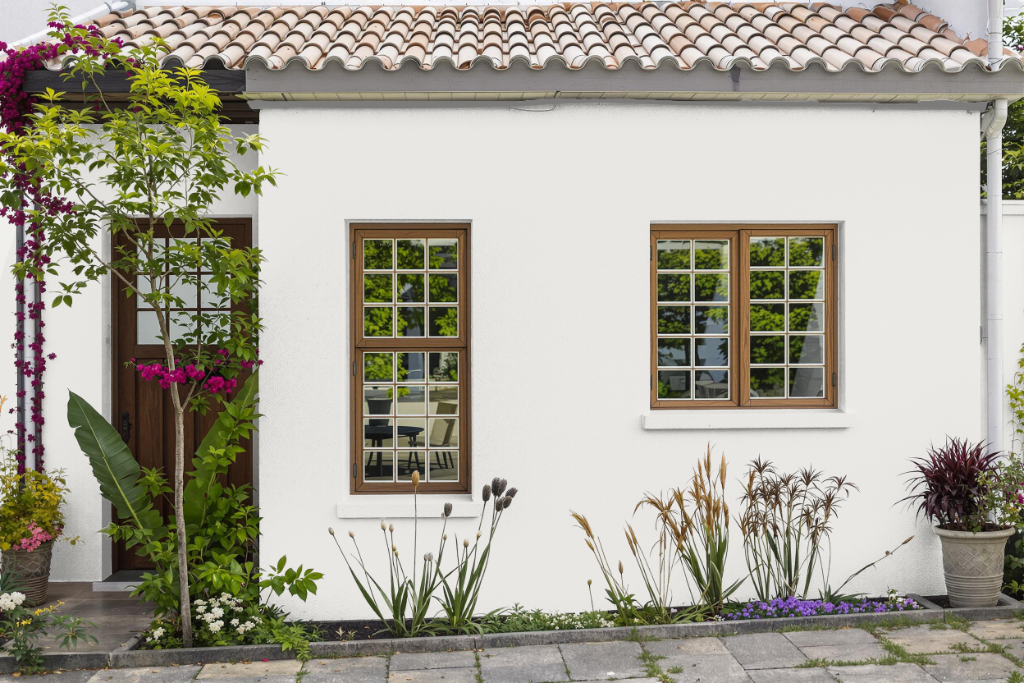
Home outdoor color Dulux Quiet Hideaway brings a refined, understated tone to exterior surfaces, where its appearance adapts based on material texture and lighting conditions. Its finish varies from rough walls to smoother features such as doors and trim, necessitating careful consideration of the environmental context.
Pairing this hue with accents like dusty rose or sage green can enhance its tranquility and create a cohesive overall look. Testing the color on actual surfaces ensures its performance in different lighting scenarios, helping to achieve the desired aesthetic effect.
